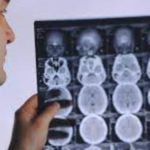10 Signs of Memory Loss You Shouldn’t Ignore
Signs of memory loss can creep up on you over time, and you may not even realize that anything is wrong until it’s too late. Some memory loss symptoms, like simply forgetting where you put your keys, are so subtle at first that you may write them off as nothing to worry about or chalk them up to being old or losing your mind.

But if these changes start to become more serious and frequent, then it could be time to talk to your doctor about getting a thorough memory checkup. Here are some common symptoms of memory loss that should not be ignored.
Your memory isn’t as sharp as it used to be and you’re not sure why? You might be suffering from age-related memory loss, but there could also be other reasons behind your declining mental faculties.
See what the most common symptoms of memory loss are and whether or not you have them.
Difficulty Remembering Recent Events
One of memory loss symptoms you shouldn’t ignore is your ability to recall recent events. If you’re not able to recall what happened at a family dinner two days ago, it could be a sign of underlying issues.
Along with finding ways to keep your mind active, talk with your doctor about memory loss symptoms. After doing some research, Dr. Holmes was surprised by how quickly she was able to pinpoint and diagnose my father-in-law’s issues and get him back on track before more damage occurred.
As she says: When in doubt, ask!
Confusion about Time and Place
If you’re having trouble remembering things you recently learned or if you find yourself frequently making mistakes with time and place, that could be a sign that your memory is declining.

If these types of cognitive issues start to impact your daily life, it may be time to visit a doctor for diagnosis and treatment. Memory loss symptoms are different for everyone, so it’s difficult to give specific suggestions about how to cope.
For some people, medication helps; for others, diet changes might be a better option. If either approach works well for you, it may become an important part of preventing further memory loss problems down the road.
Misplacing Things
Do you misplace your keys, wallet, phone or glasses on a regular basis? This is one of the most common symptoms of memory loss. Be sure to check for more subtle signs as well. For example, does it take you longer than usual to do things like grocery shop or pay bills?
With memory loss comes disorganization, which can make everyday tasks difficult. And even if these problems aren’t immediately concerning, they could signal larger issues down the road—especially if they worsen over time.
It’s never too early to start thinking about memory loss and how it may impact your life in both immediate and long-term ways. Doing so could help prevent memory loss symptoms from worsening as time goes on (and could even help you prevent them altogether).
Forgetting Names
If you forget someone’s name seconds after being introduced to them, it could be a sign that your memory is on its way out. Noticing that you have forgotten names more frequently than in previous years is also a clue something may be amiss.
If you start having trouble recognizing people you know well, such as family members or friends, it’s time to seek help for memory loss symptoms. It can happen gradually and not just at once; memory loss symptoms such as forgetting names are sometimes signs of another health problem, so make sure to get help if these problems persist.
Difficulty Initiating Everyday Tasks
It’s important to pay attention to small changes in your everyday habits. As you age, it can be easier to take things for granted and not notice when they slip. Do you find yourself forgetting simple errands like picking up laundry detergent at your local drugstore?
What about a set time each day to make breakfast or get ready for work? If so, it might be time to visit your doctor. When you’re struggling with tasks such as these, it could mean that your memory is starting to slip.
Inability to Concentrate
Changes in memory and concentration often go hand-in-hand, so if you’re having trouble focusing or are forgetting things, it could be a sign that your memory is starting to fail. This doesn’t necessarily mean a trip to a doctor.

Your inability to concentrate could be caused by anything from stress to sleep deprivation.
If your memory loss is due to something more serious, like Alzheimer’s disease—you might experience difficulty concentrating along with forgetfulness and confusion about events in your life, changes in language skills (using words you don’t normally use), or hallucinations.
Poor Short-Term Memory
A lapse in short-term memory is often a normal part of aging, but there are plenty of other reasons why your ability to remember might be faltering. Alzheimer’s and other types of dementia can all lead to problems with short-term memory, especially in more advanced stages.
Still, you may have a problem that doesn’t involve serious illness if you struggle to keep track of information over brief periods, like while taking notes during meetings or while following a quick conversation.
If you know what to look for, it could be an early warning sign that something needs attention or at least a good excuse for forgetting where you put your keys.
Decreased Recall After the Passage of Time
For some people, one of their earliest signs that something’s wrong with their memory is having trouble remembering things from even just a few hours ago. If you find yourself forgetting what you just ate for lunch or why you walked into a room, it could be a sign that your memory loss is progressing.
This can be especially alarming if it happens at work, so much so that you should talk to your doctor as soon as possible. As unpleasant as that conversation might be, it’s best to get a diagnosis and treatment started sooner rather than later, because untreated dementia can only get worse over time.
Confusion About Everyday Objects
If you look for your keys, glasses or phone and can’t find them right away, it may not be a big deal. If that happens frequently, though, you might have some memory loss.
The ability to remember what objects are and how they’re used is important because these items are tools in our daily lives. If we don’t know where they are (or when we’re searching for them), it can slow us down significantly.
Fortunately, most confusion about everyday objects is temporary. If yours isn’t or if it’s combined with other signs of memory loss, you should see a doctor to discuss treatment options.
Problems in Speaking, Writing, Reading, or Math Calculations
When you start having issues with these activities, it’s time to talk to your doctor. There are lots of reasons why someone could have trouble with these tasks; it might be a sign that your job is affecting your memory or that you’re getting older and experiencing normal changes in cognitive ability.
However, there are also some more serious causes, such as Alzheimer’s disease and Parkinson’s disease. It doesn’t hurt to bring up your concerns with a medical professional, they can rule out common causes (like stress) or refer you to a specialist if they think it’s necessary.
However, even if they tell you nothing is wrong and everything is fine… listen carefully!
10 Signs of Memory Loss You Shouldn’t Ignore Conclusion
Memory loss is a sign of a serious condition. In some cases, it may be reversible and linked to depression or stress; however, it’s important to rule out Alzheimer’s and other conditions by consulting with your doctor.
The earlier these conditions are diagnosed, treated, and managed, the more successful treatment is likely to be. By keeping an eye out for memory problems in yourself or loved ones, you can help take care of a problem before it gets too big and that makes it easier to manage when (or if) memory loss becomes permanent.



